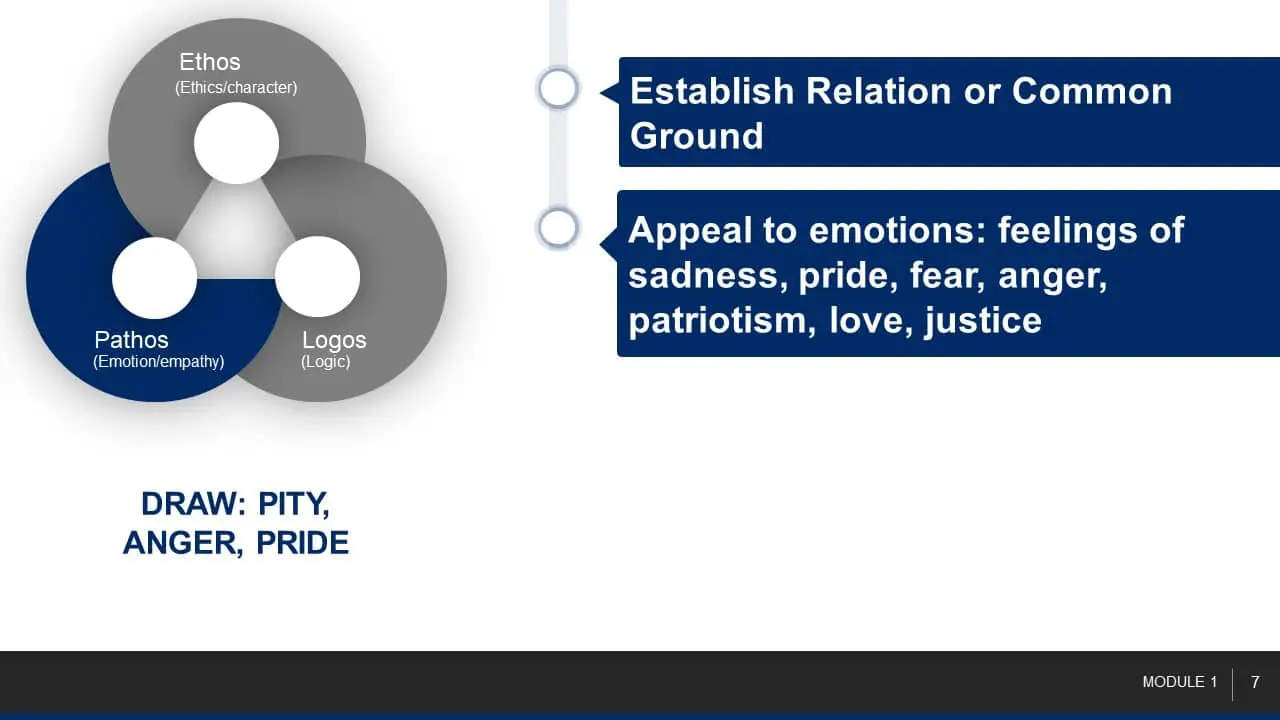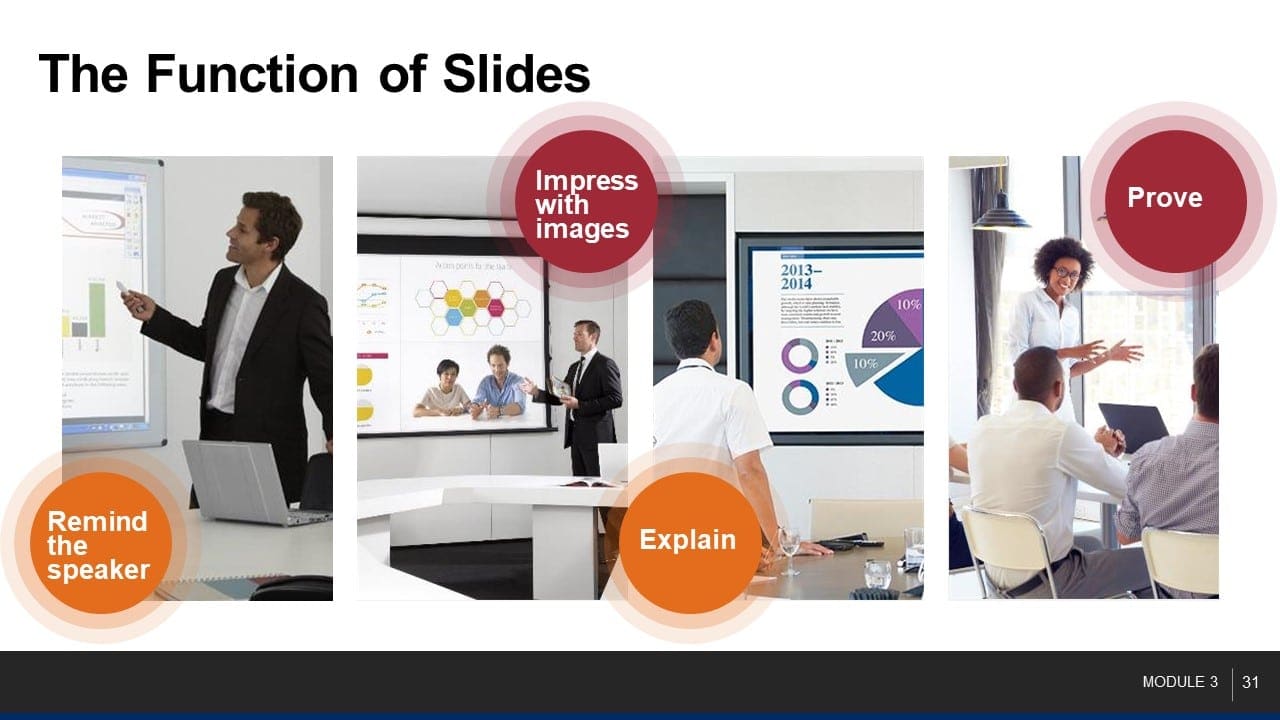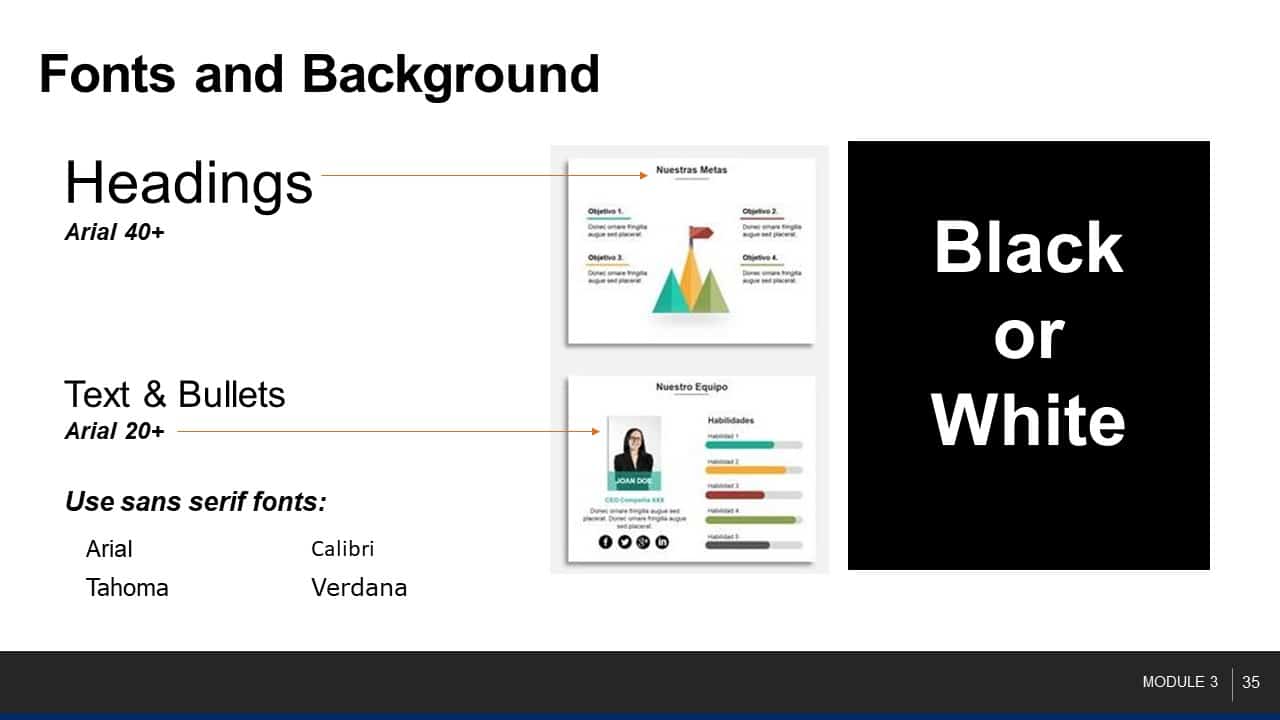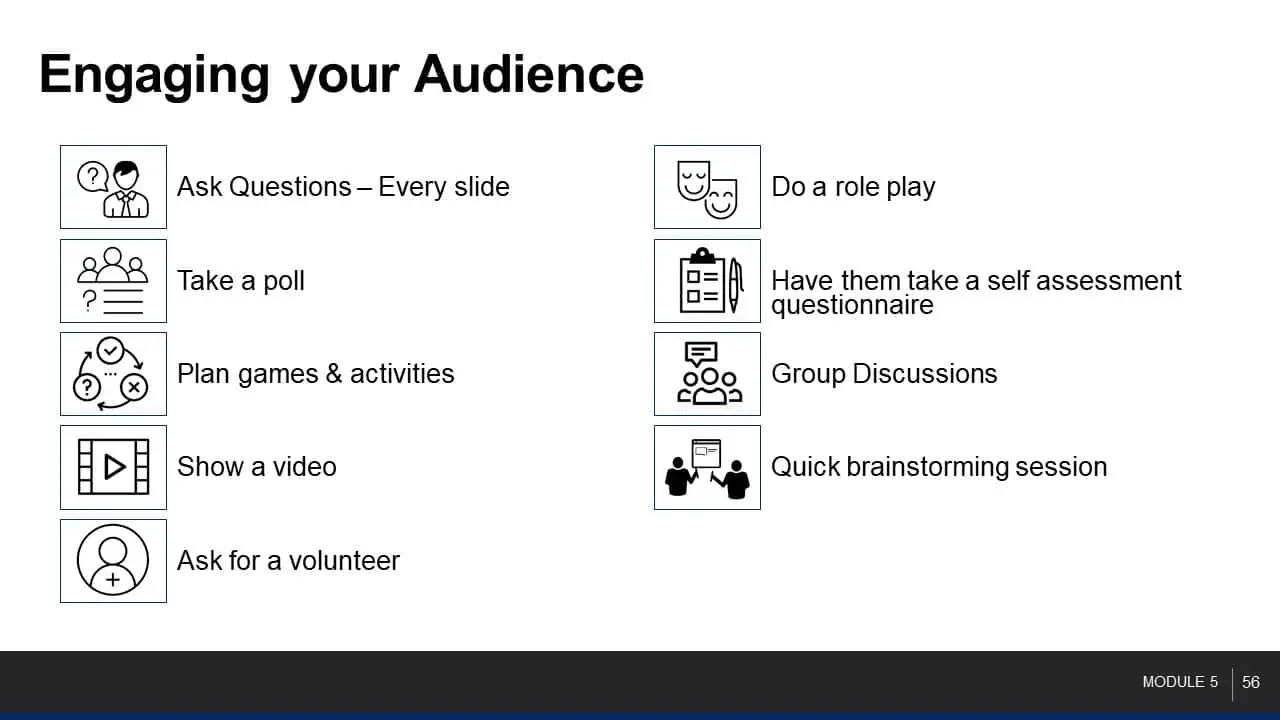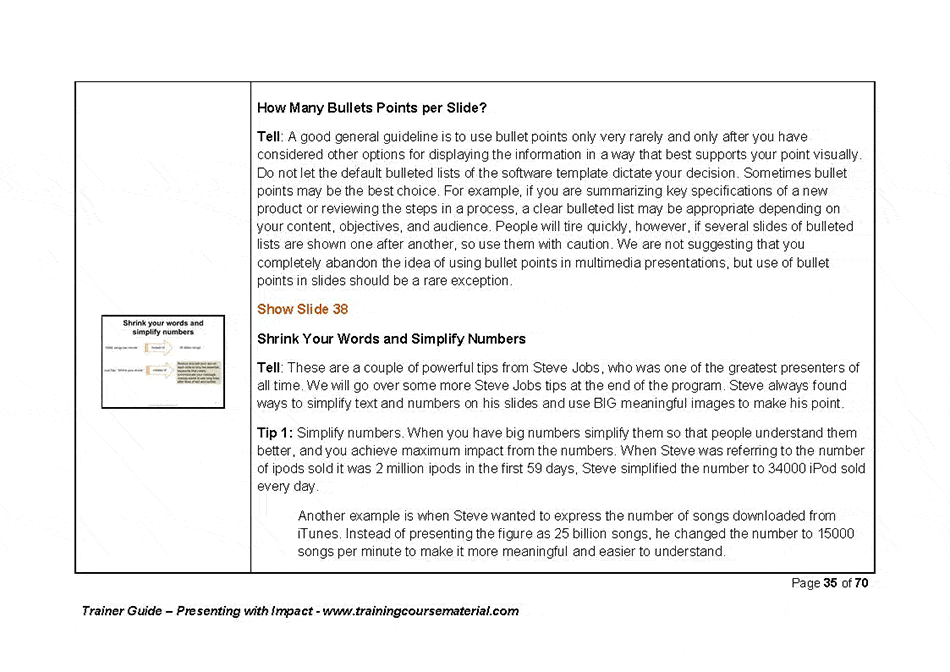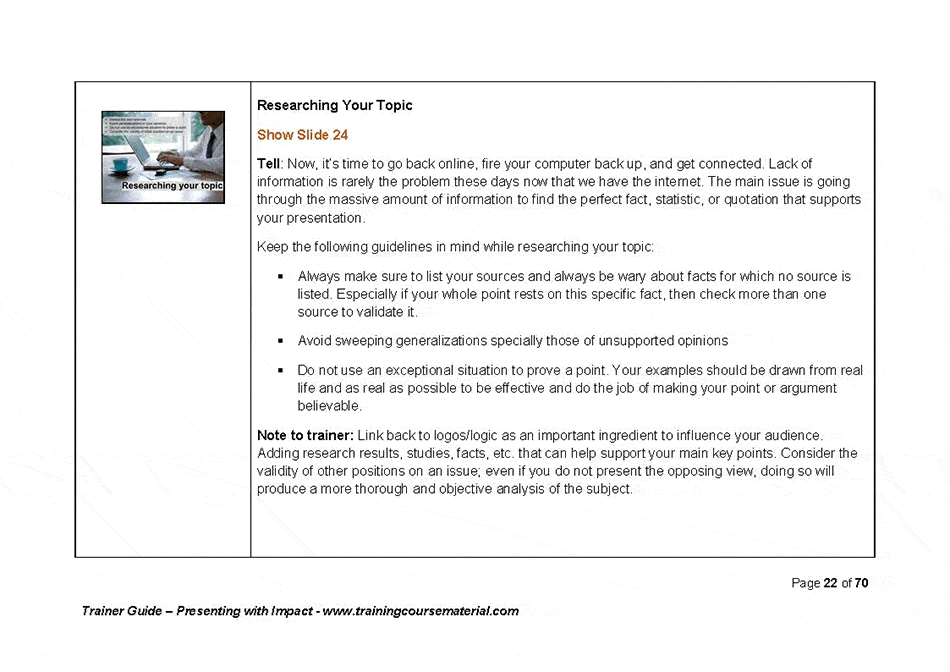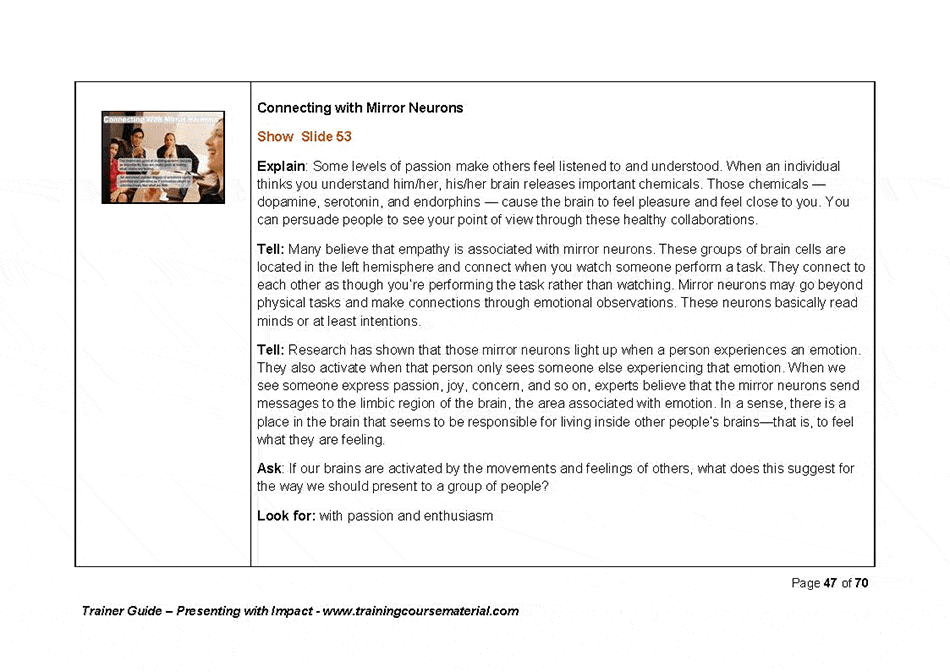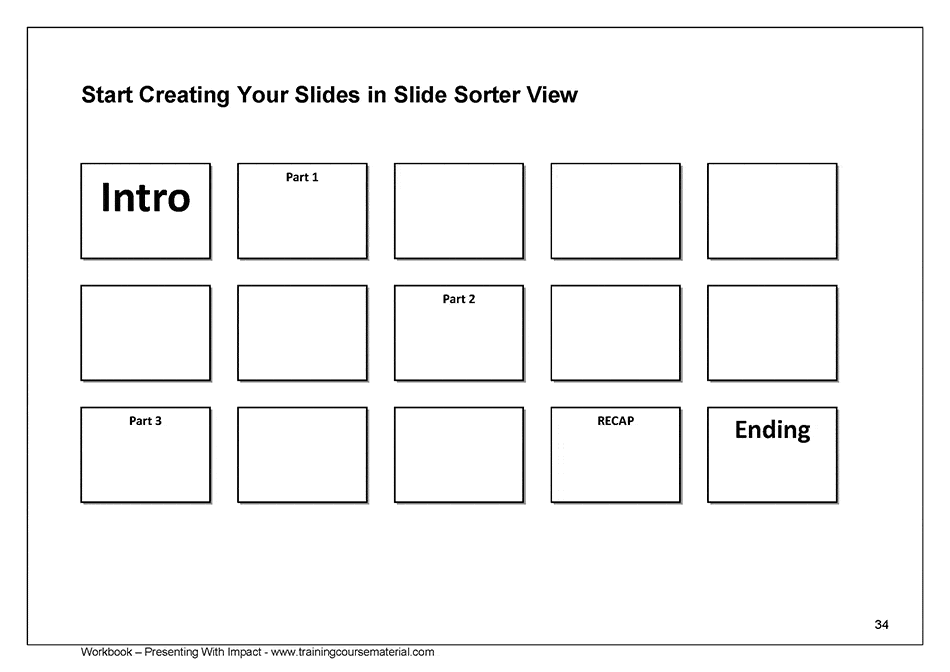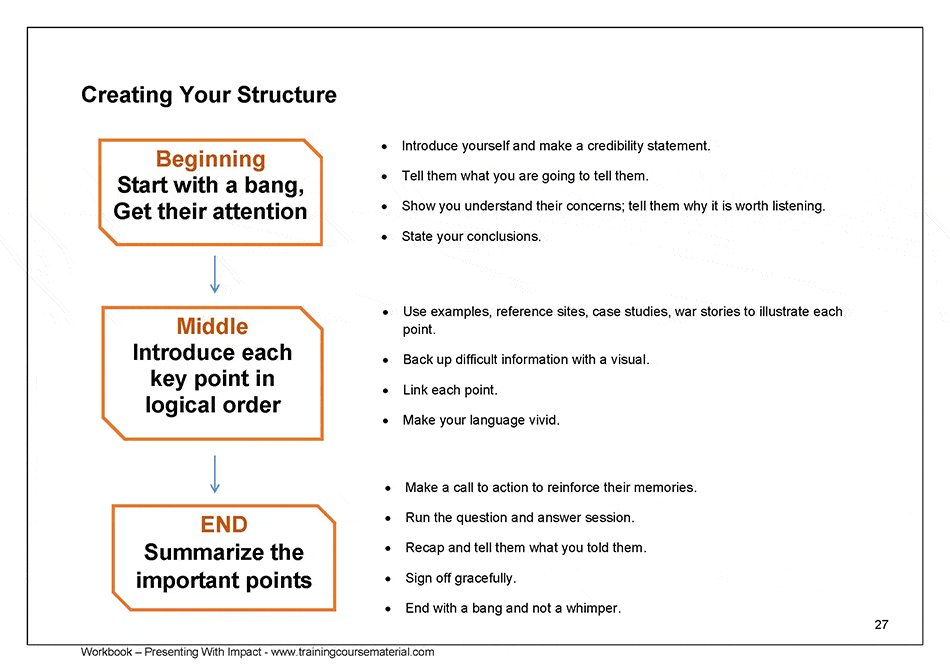Video Overview
What do I get exactly?
You receive a zipped file instantly upon purchase that includes the following in MS office format
Trainer Guide (69 Pages).
Student workbook (84 Pages).
Slide deck (74 slides).
Bonus activities ( 22 activities ).
Presentation skills self-assessment form
Training support documents ( Training evaluation forms, 5 certificate templates, program outline).
$179.95 $199.95
You will receive a secure link by email to download your purchase immediately after purchase.
 Buy Now, Download Instantly, Get A Bonus
Buy Now, Download Instantly, Get A Bonus
- 22 games and activities you can use to enrich your trainings.
- Useful training forms (Evaluation forms, certificates).
- All you need to run a great training program.
- A fun, engaging Power Point review game to easily review key questions and concepts, improve retention through a competitive challenge designed to be the grand finale of your training program.
 Competitive review game
Competitive review game
A Power Point Review game to excite your participants about your training material where they compete to win by answering questions about the training program in a series of fun rounds.
The competitive Power Point game is fully customizable, just change the questions/answers, images, backgrounds…etc. Save as a new file & create 100’s of other review games for any training materials or program to always end your training program on a high note.
Professional Presentation Training Package
- Are you a trainer looking for high quality training materials?
- Do you want to learn & teach others the design & delivery of powerful high impact presentations?
Create a clear, structured & logical design to communicate your message clearly
Design & deliver focused, compelling & engaging presentations
Learn & teach others how to present with impact and passion
Learn how to create compelling visuals
Deliver presentations passionately & confidently

High Impact
Power Point Slide Deck
To support immersive learning, a high impact professionally designed power point slide deck to engage trainees at all levels.

Student
Workbook
A comprehensive reference workbook you can give out to your class participants as a quick future reference.

Trainer
Guide
With step-by-step clear directions with tips and suggestions on what to say and how to present each slide.

Activity
/Exercise Sheets
Various training material and support documents to help you both explain and debrief the different exercises, activities and games Plus a fun final Jeopardy style review game as a fun ending for your training program.

Additional
Support Documents
To ensure you have all you need to deliver a complete and professional training program, additional supporting documents are included with each full course material package. From training evaluation forms to 5 different certificate templates that you can edit and hand out to your participants at the end of your training.

Job Aids
& Forms
Specific forms designed to extend and reinforce the training that participants can utilize back on the job to help them apply the new learned concepts (Select training material packages)
Follow the well-structured format & Deliver a powerful training
Take charge of developing your agents
Logically structured standalone modules
Enliven your training with numerous activities to tackle fundamental key points
Pick out key learning points & Energize team meetings or huddles to stress on & develop specific skills.
Easily customize & tailor further to match your specific training objectives
Overview
Standing up and reciting information while others passively listen and perhaps take notes is the common traditional presentation style that does not really work to teach, inspire, or motivate an audience. Times have changed. If the only purpose of your presentation is to transfer information, you are better off distributing it in a handout or by email and canceling the event.
An effective presentation aims to change the audience and get them to think or act differently by truly engaging them with a clear focused message, logical arguments and compelling visuals combined with a passionate delivery that evokes emotions.
This two day program will provide a guiding framework to teach others how to design, build and deliver compelling high impact presentations by following simple innovative design concepts from the initial design stage and creating the structure of the presentation to researching and building impeccable slides and visuals as well as ensuring a confident, passionate and professional live delivery.
Course Objectives
By the end of this training course participants will be able to:
Understand the Three principles of presentation.
Structure a presentation & visuals with focus, clarity and impact.
Effectively visualize, build, structure and deliver a presentation with focus, engagement and passion.
Outline of topics
Module 1 : Presentation Primer
Character, logic & emotion
the 3 Principles of presentation
evaluate your presentation – Self assessment
Module 2 : Preparing your structure
What’s the point?
Knowing your audience.
Researching your topic.
Creating your structure
Visualize your ideas.
Module 3 : Preparing your slides
The function of slides.
More images and fewer words.
Fonts, background and contrast.
Bullets, quotes and using animation.
Module 4: Preparing yourself
Are you an expert?
Dealing with nerves
Looking the part.
Attitude, skills and knowledge.
Module 5: Delivering your presentation
Passion, proximity & participation.
Beginning with a PUNCH.
Building rapport and addressing questions.
The Charisma recipe.
Having a powerful ending.
Competitive review game – An Exciting review challenge (Power Point Game) to end your training on a high note!
The Fully Customizable Training package includes
- Fully Scripted Training Guide
- Participant Reference Workbook
- Powerpoint Slide Presentation
Download Everything
Instantly
- Choose your training material package
- Add to shopping cart
- Pay using any major debit or credit card or using Paypal
- You will be taken to a download page to instantly download your purchase
- You will also receive your download links by email
- Unzip the file/s and get all your documents in MS office format
Maximize return
on your training investment
with the most cost effective solution
to your training needs
Frequently Asked Questions
Who is this training material package for?
Can I edit everything?
Can I reuse this training package?
Can I use this online?
Deliver fun, Effective And
Professional Trainings Easily!
Outstanding Value for a Modest Investment
Modular Flexibility for Enhanced Training
End on a High with a Competitive Review Game
Fully Customizable to Suit Your Unique Needs
Inspiring New Ideas for Engaging Activities
Instant Access for Immediate Implementation
Read Our
Testimonials
I have purchased several training courses over the past few years. I usually create my own content, but I have to say that I was impressed by the quality of the content. The courses are visually appealing, the learning objectives are well constructed...

My course materials were professionally designed in a compelling manner that resonated with my learners and made my delivery even more impactful. Instructional design principles were also applied in the design of the course materials...

Instructional Developer and Trainer, Canada
I just completed a three-day program ,using one of your two day packages. I was able to customize this program quite easily. The thorough work done by your team saved me a lot of time-and money. I am an experienced speaker/trainer...

Atlanta, Georgia USA
I have purchased the 3 training programmes of the Complete Communications Excellence Series. I consider that the GBP 99 cost represents excellent value for money and the materials are of a high quality. The programmes...

Team Leader,EU Support to Civil Society Project
I was looking for training material to enrich our current program in customer service. I am so glad i found the materials in this website. They are the complete package, and the bonus activities really helped me design...

Training Manager,ISN Albania
The only thing of higher quality than Training Course Material’s products is their commitment to customer engagement and support. On the few occasions when I’ve contacted their support team, their response have always been...

Rassette & Associates, Midland, Michigan, USA
I’ll be honest, at the price point for the courses I wasn’t expecting too much. However, I have to tell you that I am impressed with the materials! I spent a couple of hours reviewing the student workbook and facilitators...

Registered Corporate Coach™, Cuyahoga Falls, OH USA
I am super impressed. I am normally very picky (and very disappointed) in the quality of prepared content and this is just so well done.

Organizational Development Consultant, Oklahoma City, USA
I purchased your Train the Trainer program earlier this year and really love it. So does my client! Thanks so much for that opportunity!

Allgeier HR Consulting, Lake Placid, FLorida, USA
TrainingCourseMaterial.com's programs provide comprehensive information in a visually interesting format. Participants benefit from interactive activities that reinforce the content and making learning fun.

Trainer & Business consultant, San Francisco, USA
I found materials very useful and dynamic. I like the whole package and I think that the mix of theory and exercises is the best I could find. Also the package is the good value for money.
.

Corporate Trainer, Italy
I’m very impressed with the quality and professionalism of these training programmes. The content is structured and delivered in such a way as to facilitate a positive learning experience for the participants. The presentation and course notes are well-designed...

Trainer, Johannesburg, South Africa
I've been using training course materials for a number of years. They have some of the best products I seen on the market. Looking for engaging games, information and content Training Course Material is the way to go. Some of the best...

CPBA, CPMA, Keynote presenter, author and coach, NC USA
As a trainer, I found the Time Management Training course very comprehensive and easy to follow. I especially like the experiential aspects of the course content delivery. Every module of this package is laid out extremely well...

Safety, Training and Quality Assurance Manager, Inc. USA.
I like your training material very much which I have used before and I have not been able to get the quality of content and graphics from other courseware providers like Training Course Material. Com offers. It is very interactive...

Lead Trainer, Trinidad and Tobago, W.I.
I am very pleased with the presentation. My team and I are becoming familiarized with the information. That said, we are very pleased what you have produced.

President, Homecare Dimensions, Texas, USA
I was absolutely blown away by the quality of the training programs for such a low price.
.

Corporate Trainer, Florence, SC USA
TCM training materials are professionally written state of the art and masterfully done with up to date training aids and workbooks. Nowhere else could you find training materials of this quality for the price ... AAA+

Sales & Marketing trainer
The workshop is very well constructed, in a logical sequence and the content encompasses all the latest ideas and research. Ultimately a fantastic workshop to either deliver or participate in.
.

Professional Inspirations Ltd. UK
TrainingCourseMaterial.com have worked hard to create a totally tailored training solution for Mobile Telephony retail managers and sales teams. By creating high impact visuals and with varied and intelligent use of multi media visuals and activities...

innov8 Performance Limited, UK
I have purchased the time management package and I found it really easy to customize to meet my training requirements. The sequence of content was very conducive to life -long learning, the slides were very attractive and helpful...
.
.
.

Trainer and Consultant
Just a short note to say that since purchasing a course from yourselves, I tried 2 other vendors' courses (from U.K.) and regret wasting money on them, as their materials seemed as if a ten year old had cobbled them together in terms of format and content...

Dubai, UAE
In Sales training, TrainingCourseMaterial.com’s ability to identify the specific areas of skill gap and build a program that directly addressed those gaps is very professional. That, coupled with the dynamic training events, has helped customers...

Trainer & Consultant, Dubai, UAE
I loved all the activities that helped me achieve a high level of interaction and energy keeping participants engaged . all the activities, ice breakers and case studies that achieved a fun learning environment while maintaining depth in the knowledge acquired.

Freelance trainer and consultant, Egypt
Get all our training Packages
and Save!
To find out more about how our training course materials can help you to boost engagement, deliver effective training and enhance your team’s knowledge and understanding of the key points that are important to you, please take a moment to read our frequently asked questions, or get in touch now if you want to know more.
Finally, check out our testimonials page to find out what trainers, business professionals, team leaders, and consultants are saying about us!



